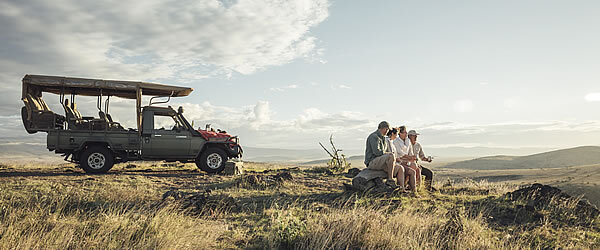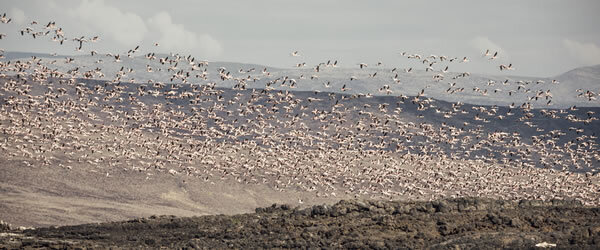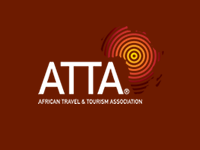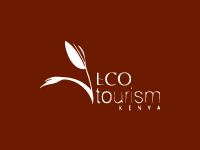FREQUENTLY ASKED QUESTIONS
Here are a few of the most frequently asked questions about coming on holiday to Kenya, or East Africa.
+ Do you have any information on vaccines and malaria?
Please seek and obtain professional medical advice from your GP or nearest Travel clinic regarding vaccination requirements for the countries and/or areas you are visiting. The best choice of vaccines for your trip depends on a number of factors, including your precise travel plans. Vaccines commonly recommended for travelers to Africa include those against:
- Tetanus
- Hepatitis B
- Yellow fever*
- Diphtheria
- Rabies
- Typhoid
- Meningitis
- Hepatitis A
- Polio
*Immunization certificate required for entry into, or travel between some African countries.
Several of these vaccines can require more than one dose, or take time to become effective. Vaccine shortages also occur from time to time – particularly with yellow fever. So it is always best to seek advice on immunisation well in advance of your date of travel. Your Immunisation card, with all vaccinations recorded, should be carried together with your passport.
Parts of Kenya, and in particular the coastal regions, are considered malarial areas. Before travel you should consult your GP and/or nearest travel clinic regarding Malaria and which prophylactics you should take. There are a number of medications you can take, which depend on a number of factors and travelers should have careful medical advice as to the possible advantages and disadvantages of each option. Prevention of Malaria should also involve preventing bites from infected female Anopheles mosquitos which can be active from dusk to dawn. Applying insect repellent and covering up during these hours reduces the risk.
+ How safe is it to travel to East Africa?
As with everything in the news media, some stories can be blown out of proportion and create a distorted view on the reality of life. Safety today is a relative term; like any major city in the world, there are some places we would not venture out to in the capital cities, nor recommend this for any traveller, no matter how adventurous! The East African culture is a very warm and welcoming one and at Bush and Beyond we take every precaution we can to ensure the safety of our travellers:
- When touring the cities, you will have a qualified driver to take you around and be with you at all times (this doubles up as a bonus when bargaining for your souvenirs!).
- When on Safari – each camp has the option of a safety box in your tent, or the camp managers will store your valuables. So you can relax and rest assured that your safety is in good hands!
+ Is Safari in East Africa child friendly?
In one word – yes!
Most camps and lodges are able to cater to families travelling with young children, and some can even arrange for caretakers. Our expert team of tour consultants will always make suggestions for the most suitable options, depending on the age range of children travelling.
Some of the activities offered on Safari may have age restrictions such as, guided walks, balloon Safaris, gorilla and golden monkey trekking, for which you will be informed about in advance. And not to worry, if the children cannot partake in these activities, there are plenty more activities to keep them occupied and entertained.
+ What are the luggage / weight restrictions on small aircraft?
The luggage limit on internal flights for both checked luggage and hand luggage is 33 pounds or 15 kgs per person and should be packed in soft bags. Please do not bring hard suitcases as these are difficult to pack in small aircraft.
Each type of aircraft has a specific payload and as such, if a passenger exceeds a certain weight they may be asked to buy an extra freight seat in the case of a schedule airline and even upgrade the aircraft type if a private charter.
Baggage policy guidelines - DOWNLOAD PDF
+ What is the policy on plastic bags?
Kenya banned the use of plastic bags in August 2017 and the regulations are very strict with heavy penalties for not adhering to the law. You are NOT permitted to leave the Arrivals area of any Kenyan International Airport with any single use plastic bags, and this includes bags in which Duty Free goods are packed. On arrival, please ensure you remove everything packed in single use plastics and pack them in your bags.
Effective 5th June 2020, the ban on single use plastics in all "protected areas" will be implemented with "protected areas" defined as Geographical spaces, recognized, dedicated and managed through legal or either effective means, to achieve long-term conservation of nature with associated ecosystem services and cultural values.
Please do not bring single use plastic items on your safari to Kenya.
Plastic bag ban guidelines - DOWNLOAD PDF
+ Oh, and the Packing List?
The best method of dress is layering. Early morning and evening game drives call for a sweater/fleece or windbreaker over a cotton long-sleeved shirt. A T-shirt or short–sleeved cotton shirt is good for mid-day. Hats are a must. Cotton trousers, shorts, trainers or comfortable hiking shoes are recommended. Should you be interested in walking then light weight hiking boots would be useful. Sandals will work in lighter terrain. Evenings can be cool and dress is casual. A fleece with a light-weight turtle neck and jeans are perfect. As there is lots of dust, khaki is always a good colour to bring.
Safari Packing List - DOWNLOAD PDF
+ What is the weather like?
Because of Kenya’s location on the equator, there are no extremes of winter and summer. The elevation of Nairobi is 5,500 feet with most of your safaris conducted at elevations of 4,500 feet or more above sea level. The nights are cool, ranging from 15 - 20 C and days temperatures range between 25-35 C. Traditionally the rainy season is from April to the end of May with the short rains in November. The coolest months are July and August and the warmest months are the end of December to mid-March.
+ Time Zone and language?
Kenya has a single time zone- which is GMT+3.
The two official languages in Kenya are Swahili and English.
+ What will I eat and drink?
At the majority of safari destinations, you will enjoy “table d’hôte” cuisine – three and four course meals. Most are able to cope with special dietary requirements if given advance warning. Bottled or filtered water will be included at most safari destinations as would local beers, wines and spirits. Most will only charge for imported spirits, cellar wines and champagne.
+ How long should our holiday be?
Staying for at least 3 nights in one place is ideal and longer is even better. East Africa has such varying landscapes that visiting 3 or 4 different locations will give you a feel for this incredible part of the world.
+ Electricity / voltage?
East Africa operates on 240 voltage so converters/ adaptors may be necessary, for charging your own equipment. Most safari destinations are run on generators which are only run in the evenings, or on solar power charging battery banks during the day. These power sources generally do not support hair driers. Please consult with your hosts for the optimum time to recharge your equipment.
+ Mobile connections?
Mobile phones and internet are available in most (but not all) of the safari areas you may visit, though signal coverage and speed varies with terrain and connections.
+ And laundry...?
The majority of safari destinations provide laundry for no additional cost, however, they prefer for you to wash your own undergarments. Turnaround time at most places is 24 hours or less (weather dependant).
+ What about money and tipping?
The currency in Kenya is the Shilling and it fluctuates in value from between 130 – 140 Shillings to one US Dollar. We suggest carrying some cash in $20’s and $50’s - $5 dollar bills are handy for tipping and gifts. Credit cards are accepted in Kenya however some of the more remote camps and lodges may not be able to take payments via card; Visa is the most commonly accepted with some establishments accepting Mastercard and American Express.
It has been a custom since safaris first began to consider tips for your guide/driver and support staff. Tipping is a difficult subject at best, even for the most experienced traveller. It is a very personal and individual matter and the decision to tip and how much to give is entirely yours. Please bear in mind that tips are gifts in Kenya whereas in the United States and Europe they resemble payments/ wages. Consult each host as to a suggested amount to give the staff. Most tipping should occur at the end of your stay.
- For guides suggest US$ 15 -20 per day.
- General camp/lodge staff: suggest US$ 10 – 15 per guest per day in total for all staff.
- While in Nairobi, suggest 10% for meals in restaurants.
- Child minder: suggest US$20 per day.
Note:- Tips cannot be invoiced or paid by credit card. Kenya now accept $ denominations from the year 2009 onwards.
“People learn a lot about themselves on safari...like shining a mirror on their own lives”

















